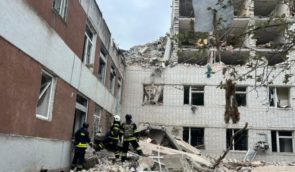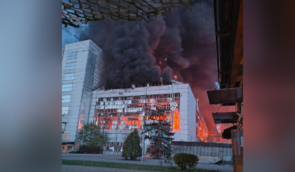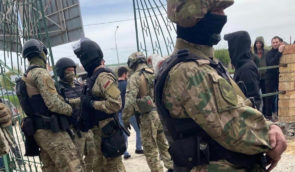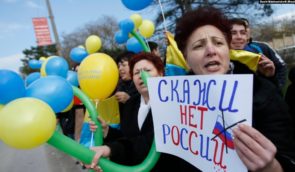Prisoners from Crimea are taken to 49 penitentiary institutions throughout Russia
Imprisoned Ukrainians from Crimea are taken to 49 penitentiary institutions in 23 constituent entities of the Russian Federation.
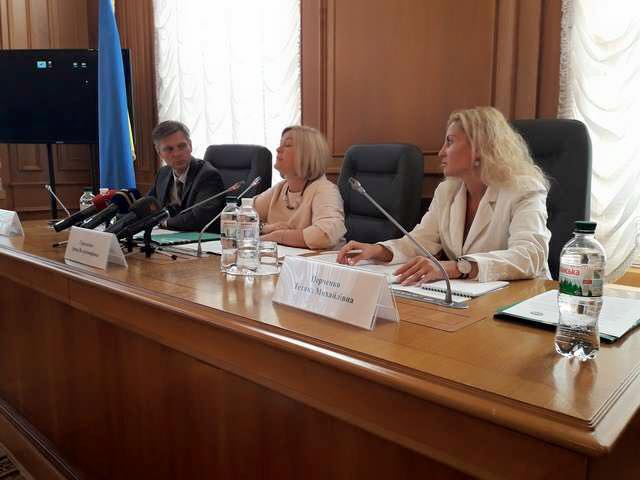
As reported by the press-service of the Ministry for Temporary Occupied Territories and Internally Displaced Persons of Ukraine referring to the data of human rights defenders, presented during the round table “Disenfranchised and forgotten: citizens of Ukraine in places of detention in territories outside Ukraine’s control (Crimea, Donbas)”.
The Ministry also notes an increase in the number of prisoners in places of detention in the territory of Crimea.
“According to the Regional Center for Human Rights, in February-March 2014 in Crimea there were 3,400 people in prison.Ukrainian Helsinki Human Rights and the Regional Center for Human Rights documented that currently this figure has increased to 4 700 people by sentencing courts established in the territory of Russia annexed Crimea”, – said in the statement.
The event, which was held in the Verkhovna Rada by the Committee on Human Rights, National Minorities and Interethnic Relations in cooperation with the International Renaissance Foundation , was attended by people’s deputies, representatives of public authorities, the scientific community, public and international organizations.
Natalya Melnyk, representative of the NGO Donbas SOS, noted that it is problematic to locate many convicts.
According to her, the convicts complain that they can not serve their sentence in accordance with the Ukrainian legislation, can not be release on early parole, can not apply for a violation of their rights to the State authorities of Ukraine, are not allowed to see their relatives, can not write letters to them and can not receive the letters from relatives. There are cases when the medical assistance is not provided, as well as cases of deaths as a result of military operations.
In addition, the sentences of convicts were reviewed and the detention conditions were worsened. At the same time the terms of punishment remained unchanged.
The respondents also note that the Criminal Code of the USSR of 1960 is still used in the Russian penitentiary institutions.
The representative of the Donbas SOS also concluded that in uncontrolled territories the true number of persons who expressed a desire to be transferred to the territory under Ukraine’s control is hidden.
Roman Romanov, Director of the Human Rights and Justice Initiative of the Renaissance Foundation, emphasized the need to determine the attitude towards people who found themselves in places of detention, many of whom committed unlawful actions, but at the same time they remain Ukrainian citizens. Therefore, it is necessary to determine whether the Ukrainian State has done enough, whether all means have been used to make Ukrainian citizens feel that they are citizens of Ukraine, regardless of how difficult are the circumstances of their detention under the conditions of occupation and armed conflict.
Romanov suggests to give a further thought about the role of international organizations and how to communicate with people who are in the occupied territories and in particular, in places of confinement.
As reported by the Human Rights Committee, the participants of the round table have also discussed the situation of convicts and persons, who are held in custody in Crimea and Donbas; the legal status of Ukrainian citizens who are held or released from places of detention (necessary at the legislative level) mechanisms for resolving the problem of returning (extraditing) Ukrainian citizens, who are in places of detention on territories temporarily uncontrolled by the Ukrainian authorities (existing convention mechanisms, Ombudsman mechanism, etc.).
As a result of the round table, the participants adopted recommendations to the relevant authorities on increasing the effectiveness of the legislative and institutional influence of the State on the process of assisting convicts and citizens of Ukraine who are on the territory outside of the government’s control and temporarily occupied territory of Crimea and the need to comply with international humanitarian law.

